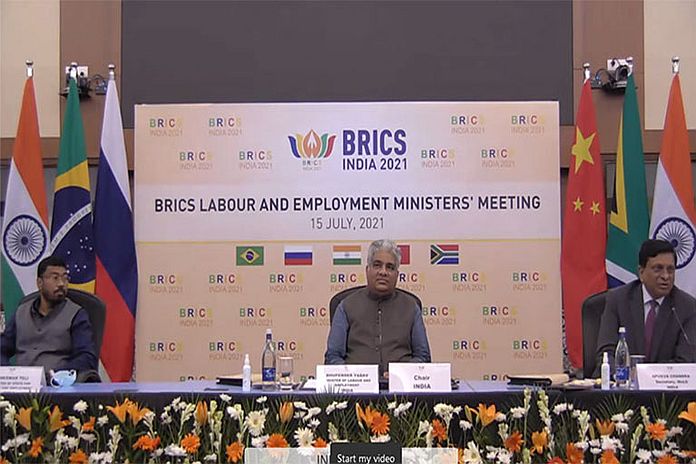GENEVA (ILO News) – The director-general of the International Labour Organization (ILO), Guy Ryder, has welcomed the endorsement by the Labour and Employment Ministers (LEMM) of the BRICS countries – Brazil, Russia, India, China and South Africa – of the ILO’s Global Call to Action for a human-centred recovery from the COVID-19 crisis, adopted by last month’s International Labour Conference.
Describing the Declaration adopted by the LEMM as “a concrete demonstration of your commitment to repair the damage of the crisis,” Ryder said, “[the Global Call] outlines a comprehensive agenda to ensure that the recovery is inclusive, sustainable and resilient, and based upon fundamental principles and rights at work. This approach is essential. Unless we address the inequalities that have deepened during this crisis, there is a real risk that its economic and social consequences will cause long-term scarring.”
The Global Call to Action for a human-centred recovery was adopted unanimously by ILO Member States in June 2021, at the International Labour Conference.
The LEMM Declaration, issued at the end of the ministers’ virtual summit on 15 July 2021, expresses great concern at the pandemic’s negative effects on unemployment, decent work deficits and inequality, and states their strong determination to recover with stronger national economies, inclusive labour markets and social protection systems.
Their Declaration highlights four key pillars for labour and employment policy responses to the pandemic; promoting social security agreements between BRICS nations, formalisation of labour markets, women’s labour force participation, and the role of gig and platform workers.
Ryder welcomed the ministers’ commitment to deepen social security cooperation and promote agreements between themselves, saying “this could make a real difference for the millions of workers who travel to other countries to find work.”
The director-general also praised the pledge to improve the situation of women in the labour force and to accelerate progress on shifting informal economy workers to the formal economy, adding that, “if we are to address these issues effectively we need concrete policies and action. Creating an economic recovery will not be enough by itself.”





